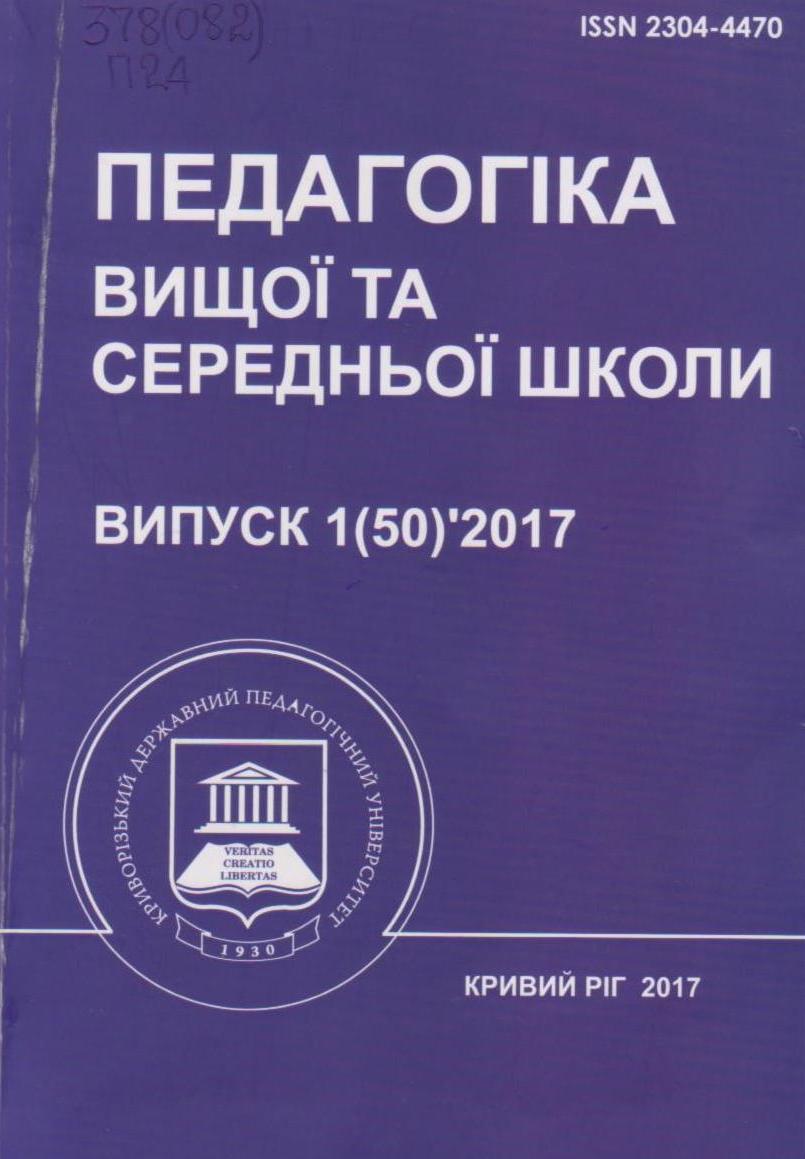Professional mobility as the component of future engineerteachers’ legal culture
DOI:
https://doi.org/10.31812/pedag.v50i0.1287Keywords:
культура, право, правова культура, правова свідомість, правова освіта, структура правової культури, інженер-педагог, професійна мобільністьAbstract
The article is devoted to the future engineer-teachers’ legal culture and professional mobility as its component investigation. Social importance of professional mobility in the future engineer-teachers legal culture formation is defined. Professional mobility is the component of legal culture because legal competence provides a successful socialization of the specialists. One can be flexible if it is necessary to change position or even the profession. Positive attitude to the legal reality allows professionals to be confident and solve educational and engineering problems within the law area. Legal education is the component of the state educational system and it spreads legal knowledge in training form that is characterized by consistency and fundamentality. Legal education is closely connected with mental training that is directed to form legal consciousness. Major professional qualities of future engineer-teachers are analyzed that are necessary for their engineer and pedagogical activity. Future specialists should have personal qualities to realize their professional activity such as: adaptability, critical thinking, professional mobility, information culture, high legal culture, social skills. Main components of future engineer-teachers’ legal culture are determined and the content of each is considered. The structural components of the future engineers-teachers’ legal culture such as: information and erudition, axiological, regulation-behavioral and personality are defined. Professional mobility is structured in the personal component because it allows the professional to adapt quickly and effectively to new conditions. In addition, professional mobility includes a set of basic components of life competence, key and professional competences, qualities that allow the future specialist to be competitive in the labor market. Moreover, professional mobility makes education open to new international trends, encourages teachers to keep on improvement and updating of training technologies and methods.
Downloads
References
Актуальність професійно-правової підготовки майбутніх інженерівпедагогів // Проблеми інж.-пед. освіти : зб. наук. праць. – Харків, 2010. –Вип. 26/27. – С. 65–70.
Бачев Д. О. Освіта – пріоритетний напрям державної політики України / Д. О. Бачев // Бюлетень законодавства і юридичної практики України. – 1999. – № 9. – С. 3–9.
Болонина С. В. Научно-методические основы преподавания правовых дисциплин в неюридических вузах : автореф. дисс. на соискание научной степени канд. пед. наук : спец. 13.00.08 «Теория и методика профессионального образования» / С. В. Болонина. – Москва, 2000. – 25 с.
Головко Н. І. Правова педагогіка : [навч. посіб.] / Н. І. Головко. – Київ : МАУП, 2007. – 248 с.
Коваленко І. І. До питання про функції правової культури / І. І. Коваленко, Т. А. Цувіна // Наук. зап. Харк. ун-ту повітр. сил. – 2009. – Вип. 2. – С. 84–89. – (Серія : Соціальна філософія, психологія).
Курлянд З. Н. Теорія і методика професійної освіти : [навч. посіб.] / [за ред. З. Н. Курлянд]; [З. Н. Курлянд, Т. Ю. Осипова]. – Київ : Знання, 2012. – 390 с.
Подберезський М. К. Правова культура майбутнього вчителя (теоретико-методологічний аспект) : [монографія] / [за ред. акад. АПН України, д-ра пед. наук, професора І. Ф. Прокопенко]. – Харків : Основа, 1997. – 220 с.
Подберезський М. К. Формування правової культури. Теоретичні та методичні основи / М. К. Подберезський, В. О. Безбородий. – Мукачеве : Елара, 1999. – 276 с.
Подзолков В. Г. Материалы к курсу лекций по правовому воспитанию / Подзолков В. Г. – Тула : ТГПУ им. Льва Толстого, 2001. – 113 с.
Downloads
Published
Issue
Section
License
Copyright (c) 2017 Cвітлана Вікторівна Соколова

This work is licensed under a Creative Commons Attribution 4.0 International License.




